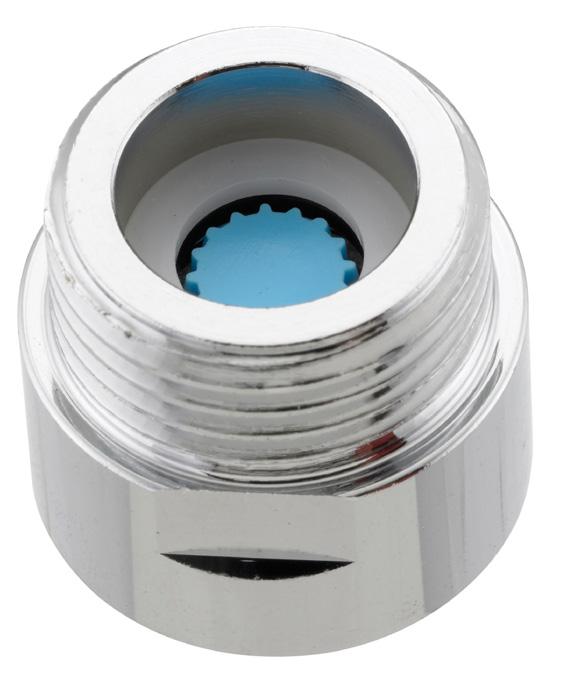
2 minute read
WATER SAVING
JUST GOING WITH THE FLOW?
Can consumers understand the benefits and drawbacks of opting for water efficient products? Hayley Holland at Bristan discusses the role that installers play in water saving.
Advertisement
Despite our famously wet climate, the UK has less available water per person than most European countries. London is drier than Istanbul, and the South East of England has less than Sudan and Syria. Yet the average Briton is still using 150 litres of water a day, a figure which climbs to an astonishing 4,645 litres when you include the water used to produce all our other daily consumables. In response, the UK Government has launched a raft of legislation and initiatives, with the aim of reducing water consumption by 20 per cent per person by 2030.
Furthermore, by increasing energy-saving awareness consumers are becoming better educated with regard to using water more wisely. This benefits both the environment and household bills.
Interestingly, a recent Waste and Resources Action Programme (WRAP) consumer attitudes report discovered that at least 83 per cent of consumers agree that water-saving will become more important in the next five years. Critically, 51 per cent of those surveyed stated that they look to installers for guidance when choosing bathroom fittings. It's crucial for installers to be informed of the latest recommended water-saving products, and to be able to explain the benefits to their customers. For homeowners looking to begin reducing water consumption, tap and shower models which feature an integrated flow regulator are great places to start.
Simple yet highly effective, flow regulators limit the flow of water through the product. Typically, a basin tap running at mains pressure can easily deliver in excess of twelve litres per minute. In comparison, flow regulated basin taps can limit flowrate to as little as two litres per minute!
Some brassware can be fitted with a device that offers subtle resistance at the halfway point, raising the user’s awareness of its flow. In addition, many showers are supplied with flow regulators, providing flows of around four to six litres per minute. Bristans's Artisan Evo Digital thermostatic mixer shower, includes builtin eco features that reduce water usage.
Be aware, the reduction of water consumption can impact on the pressure of a shower and so it is good practice for the installer to inform the customer to avoid disappointment. A positive counter argument could be mentioning the benefit of water saving measures, especially lower water bills. The cost savings can be significant; according to the Energy Saving Trust, if a family of four replaced their inefficient shower with a water-efficient one, they could save around £100 on their water bills (if they have a water meter) and reduce their gas bills by £65, this creates a combined annual saving of some £165! Water consumption is becoming a bigger issue year on year, and consumers look to installers to advise them on the best ways to reduce usage. For installers this is an opportunity to demonstrate expertise and gain an essential edge in the market.
For more information on water-saving bathroom products visit:
www.bristan.com/ecosmart











